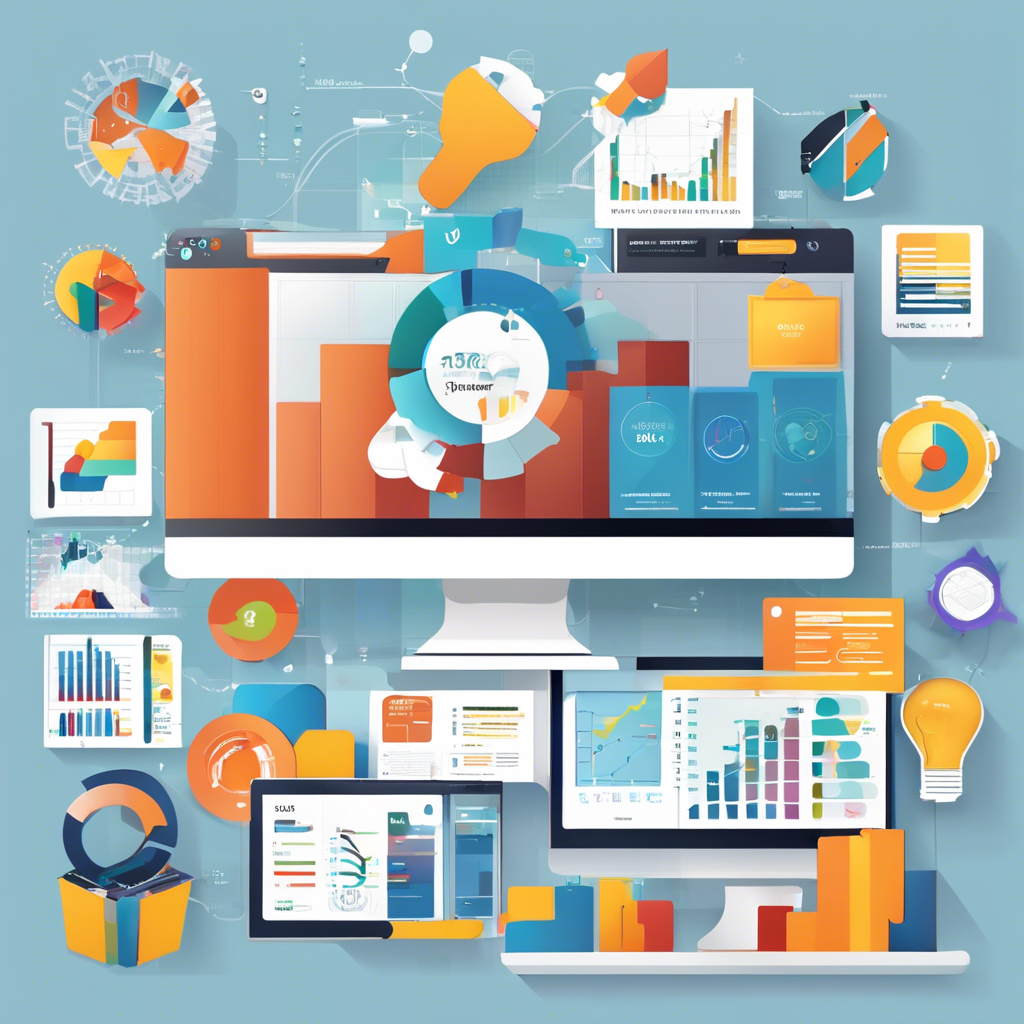Data analytics tools have revolutionized the way businesses make decisions and analyze trends. These tools allow organizations to gather, process, and analyze large sets of data to derive valuable insights and make informed decisions. In today’s data-driven world, businesses rely on data analytics tools to gain a competitive edge and stay ahead of the curve. From small startups to large corporations, the use of data analytics tools has become essential for success.
One of the key benefits of data analytics tools is their ability to process massive amounts of data quickly and efficiently. These tools use advanced algorithms and machine learning techniques to sift through vast datasets and identify patterns, trends, and correlations that would be impossible for humans to uncover manually. By automating the data analysis process, businesses can save time and resources while gaining valuable insights that can drive strategic decision-making.
Additionally, data analytics tools enable organizations to track key performance indicators (KPIs) in real-time and monitor the success of their initiatives. By providing up-to-date insights into various aspects of the business, such as sales performance, customer behavior, and operational efficiency, these tools empower businesses to make data-driven decisions that drive growth and profitability.
Moreover, data analytics tools offer powerful visualization capabilities that allow users to create interactive charts, graphs, and dashboards to communicate their findings effectively. Visual representations of data make it easier for stakeholders to understand complex information and identify trends at a glance. By presenting data visually, businesses can communicate insights more clearly and make informed decisions based on data-driven evidence.
Furthermore, data analytics tools come in a variety of forms, from simple spreadsheet software to advanced business intelligence platforms. Depending on the needs and resources of the organization, businesses can choose the tool that best suits their requirements and budget. Whether it’s a basic tool for tracking sales performance or a sophisticated platform for predictive analytics, there is a data analytics tool available for every business need.
In addition to processing and analyzing data, data analytics tools also play a crucial role in predictive analytics and forecasting. By using historical data and advanced algorithms, these tools can predict future trends, customer behavior, and market dynamics with a high degree of accuracy. This capability allows businesses to anticipate changes in the market and proactively adjust their strategies to stay ahead of the competition.
Moreover, data analytics tools help businesses optimize their operations and improve efficiency by identifying areas for improvement and streamlining processes. By analyzing data on key operational metrics, such as production output, supply chain performance, and resource utilization, organizations can identify bottlenecks, inefficiencies, and opportunities for cost savings.
Furthermore, data analytics tools enable businesses to gain a deeper understanding of their customers and target their marketing efforts more effectively. By analyzing customer data, such as demographics, purchase history, and online behavior, businesses can create targeted marketing campaigns that resonate with their target audience and drive higher conversion rates.
Additionally, data analytics tools play a crucial role in risk management and compliance by helping organizations identify potential risks, fraud, and compliance issues. By analyzing data patterns and anomalies, these tools can flag suspicious activities and alert businesses to potential threats before they escalate. This proactive approach to risk management can help businesses mitigate risks and protect their assets and reputation.
Moreover, data analytics tools are continuously evolving and incorporating new technologies, such as artificial intelligence and predictive modeling, to provide more advanced analytics capabilities. By leveraging these cutting-edge technologies, businesses can gain deeper insights into their data, predict future trends with greater accuracy, and make informed decisions that drive business growth and innovation.
Furthermore, data analytics tools are not only limited to businesses but also have applications in various other fields, such as healthcare, education, and government. In healthcare, for example, data analytics tools can help medical professionals analyze patient data to improve diagnosis and treatment outcomes. In education, these tools can help educators track student performance and personalize learning experiences. In government, data analytics tools can help policymakers analyze public data to make informed decisions that benefit society as a whole.
In conclusion, data analytics tools have become indispensable for businesses looking to harness the power of data and gain a competitive edge in today’s fast-paced business environment. By leveraging the capabilities of these tools, organizations can analyze data more efficiently, make informed decisions based on data-driven insights, and drive growth and innovation. As technology continues to advance, data analytics tools will play an increasingly vital role in shaping the future of business and driving success in the digital age.
